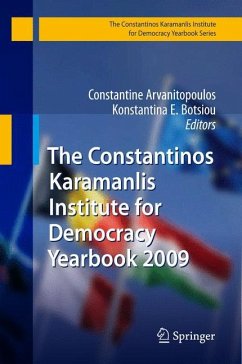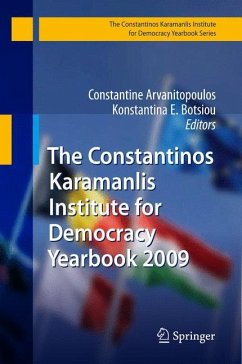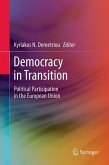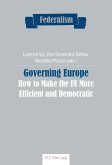The year 2009 finds Europe at a crossroads. The European Union faces the challenges posed by the Lisbon Treaty under the impact of a major international financial and economic crisis. Transatlantic relations are stimulated by the change of administration in Washington. On both sides of the Atlantic political priorities focus on the build-up of social protection against economic recession, the adoption of innovative energy and environmental policies, the promotion of security and the prevention of humanitarian disasters in unstable areas, notably the Middle East and Africa. This book addresses this complex international environment through essays that were presented in publications and public events of the Constantinos Karamanlis Institute for Democracy. It brings together prominent scholars and policy makers from various national backgrounds. Their contributions highlight policies and ideas that shape issues of international interest, reflecting also the public debate in Greece within the European context.
Constantine Arvanitopoulos and Konstantina E. Botsiou Europe at a Crossroads European uni?cation has rested on a dual premise. One part was the effort of the European nations to consolidate peace by overcoming the nationalism which had 1 twice drenched the continent in blood in the 20th century. War among West European states became unthinkable in the post-war era. The second part was the creation of a single European economy following the tremendous task of post-war 2 reconstruction and recovery. Over the years the achievement of economic stability was matched by initiatives that aimed to render Western Europe competitive on a global scale. The creation of the European Union (EU) in the 1990s through the Treaties of Maastricht (1992) and Amsterdam (1997), and later Nice (2001), which successively revised the founding Treaties of Rome (1957), was largely a response 3 to the challenge of globalisation. Integration 'rejuvenated' the nation state, thus creating the hybrid of the Euro- 4 pean welfare state, a mix of state-imposed stability and private initiative. Like its 1 Sforza, C. (1936). Europe and the Europeans: Community: Report A study in historical psych- ogy and international politics. London: George G. Harrap and Company. 2 Milward, A. S. (1984). The reconstruction of Western Europe 1945-1951. London: Routledge. Hogan, M. J. (1987). The Marshall plan: America, Britain, and the reconstruction of Western Europe, 1947-1954. Cambridge: Cambridge University Press. 3 Dyson, K. , & Featherstone, K. (1999).
Constantine Arvanitopoulos and Konstantina E. Botsiou Europe at a Crossroads European uni?cation has rested on a dual premise. One part was the effort of the European nations to consolidate peace by overcoming the nationalism which had 1 twice drenched the continent in blood in the 20th century. War among West European states became unthinkable in the post-war era. The second part was the creation of a single European economy following the tremendous task of post-war 2 reconstruction and recovery. Over the years the achievement of economic stability was matched by initiatives that aimed to render Western Europe competitive on a global scale. The creation of the European Union (EU) in the 1990s through the Treaties of Maastricht (1992) and Amsterdam (1997), and later Nice (2001), which successively revised the founding Treaties of Rome (1957), was largely a response 3 to the challenge of globalisation. Integration 'rejuvenated' the nation state, thus creating the hybrid of the Euro- 4 pean welfare state, a mix of state-imposed stability and private initiative. Like its 1 Sforza, C. (1936). Europe and the Europeans: Community: Report A study in historical psych- ogy and international politics. London: George G. Harrap and Company. 2 Milward, A. S. (1984). The reconstruction of Western Europe 1945-1951. London: Routledge. Hogan, M. J. (1987). The Marshall plan: America, Britain, and the reconstruction of Western Europe, 1947-1954. Cambridge: Cambridge University Press. 3 Dyson, K. , & Featherstone, K. (1999).







